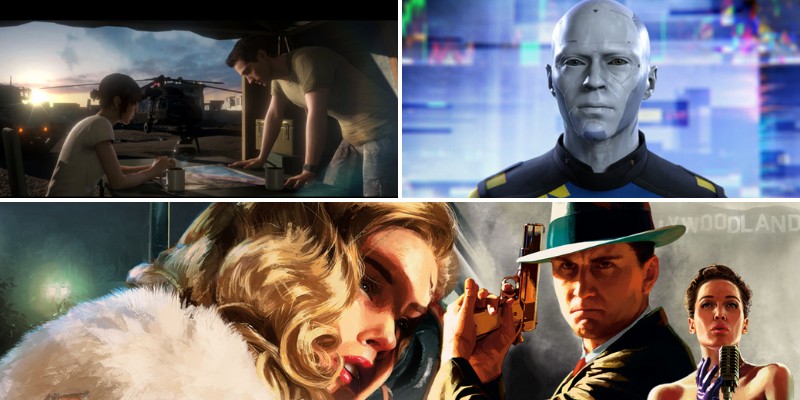

I think, reading the reviews, reading the forums, talking to gamers, this is something that people felt and reacted to very positively. And, basically, enlarging the kind of emotions that you can feel.

It was about sadness, it was about depression, it was about making you feel uncomfortable. So, it was not about stress or fear or tension or frustration, it was about empathy. You know, the main goal of Heavy Rain was to trigger different types of emotions and not ones you usually find in video games. In which ways were you most successful in creating that "interactive drama?" And by buying the game this is exactly what people did. It was like voting for this industry to change and evolve.

We sometimes said in the past that buying Heavy Rain was some kind of political thing to do. Joystiq: There's a trophy in Heavy Rain that says, "Thank you for supporting interactive drama." What's the story behind that?ĭavid Cage: It was a simple way to say thank you to people who supported what we tried to achieve with this. If you have not completed Quantic Dream's cinematic adventure, do not proceed beyond the break - and don't even think about reading the comments. SPOILER WARNING: The following interview contains massive, big-huge spoilers for Heavy Rain. Oh, and the nature of the Origami Killer, which means. We drew Heavy Rain's director and writer, the soft-spoken, passionate and occasionally enigmatic David Cage, into the ongoing discussion and asked him to elaborate upon the game's story, its technology and its critical reception. But Heavy Rain - whether you like it, love it or loathe it - has been kept afloat in popular opinion, with critics still debating its controversial design and embarrassing themselves as they attempt to shoehorn water puns like "afloat" and "evaporates" into ham-fisted introductory paragraphs. Once a major release has been completed and propelled to the top of the sales charts, the critical discussion surrounding it typically evaporates just as the Next Big Thing appears on the horizon.


 0 kommentar(er)
0 kommentar(er)
